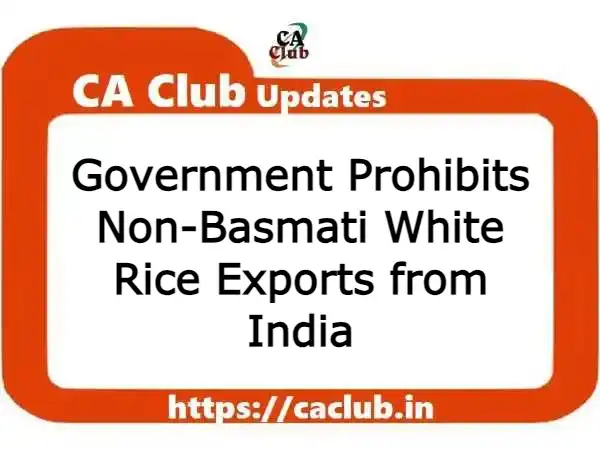The Indian government has taken a significant step to address the rising domestic prices of Non Basmati White Rice and ensure sufficient availability in the domestic market. In a move aimed at benefiting consumers during the upcoming festival season, the Government of India has amended the Export Policy of Non Basmati White Rice from ‘Free with export duty of 20%’ to ‘Prohibited,’ with immediate effect.
Background: Rising Prices
The domestic prices of rice have been on the rise, with an 11.5% increase over the past year and a 3% increase over the past month. To tackle this issue and stabilize the prices, an export duty of 20% was imposed on non-basmati white rice on September 8, 2022. The objective was to lower the price and ensure an adequate supply in the domestic market.
However, despite the imposition of the export duty, the export of Non Basmati White Rice continued to increase. In the current fiscal year 2023-24 (April-June), about 15.54 Lakh Metric Tons (LMT) of this rice variety was exported, compared to only 11.55 LMT during FY 2022-23 (April-June), representing a substantial 35% increase. This surge in exports was attributed to high international prices caused by various factors, including geopolitical tensions, El Nino effects and extreme climatic conditions in other rice-producing countries.
Prohibition: Ensuring Domestic Availability and Price Control
Non Basmati White Rice accounts for approximately 25% of the total rice exported from India. By prohibiting its export, the government aims to bolster the availability of this rice variety in the domestic market. This move is expected to have a positive impact on consumers, as it will help lower rice prices and ensure sufficient supply during the festive season.
It is worth noting that while the export of Non Basmati White Rice is now prohibited, there are no changes to the export policy of Non Basmati Rice (Par Boiled Rice) and Basmati Rice, which constitute the major chunk of rice exports. This strategic decision is aimed at safeguarding the interests of farmers, ensuring they can continue to benefit from competitive prices in the international market for these rice varieties.
Accordingly, DGFT has issued Notification 20/2023 dated 20/07/2023 regarding Amendment in Export Policy of Non-Basmati rice under HS code 1006 30 90.
Conclusion
The Government of India’s decision to prohibit the export of Non Basmati White Rice comes as a measure to mitigate the impact of increasing domestic prices and ensure ample availability for consumers during the festival season. By making this move, the government aims to stabilize rice prices and alleviate any potential scarcity in the market.
This decision is targeted specifically at Non Basmati White Rice, as it constitutes a significant portion of rice exports from India. Other rice varieties, such as Non Basmati Rice (Par Boiled Rice) and Basmati Rice, will continue to be exported as before, enabling farmers to enjoy favorable prices in the international market.
Overall, this move is expected to have a positive effect on consumers and the agricultural sector, contributing to a stable and thriving rice market in India.
